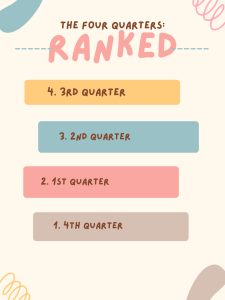Trump Puts Human Rights at the Bottom of His To-Do List
January 25, 2019
The Trump administration has taken its biggest step yet away from the United States’ commitment to human rights. This past June, President Donald Trump declared his highly-anticipated exit of the United Nations Human Rights Council.
The UN Human Rights Council is a committee made up of 47 seats filled with countries from Africa, Asia, Latin America and the Caribbean, Western and Eastern Europe, Australia, and the United States. Each year, the UN General Assembly elects members to participate in the council. The council meets three times a year in order to discuss new human rights standards, possible human rights investigations, and to review the human rights records of every country in the UN.
In a press conference, Trump’s UN Ambassador, Nikki Haley, tried to explain the United States’ logic for leaving the council. Haley claimed that the United States could not support an organization that was clearly biased against Israel.
“Earlier this year, as it has in previous years, the Human Rights Council passed five resolutions against Israel — more than the number passed against North Korea, Iran and Syria combined,” said Haley. “This disproportionate focus and unending hostility toward Israel is clear proof that the council is motivated by political bias, not by human rights.”
Although Haley is right about the council’s inefficiency to review every nation thoroughly, the council is only doing its job by bringing up concerns about Israel’s record. Israel deserves to be brought up in multiple resolutions if they continue to commit multiple human rights abuses such as illegal settlements on Palestinian land, the killing of Palestinian protesters, and the Gaza blockade. In 2017, Israeli security officers injured 3,494 protesters, 62 of which were killed. If Trump and Haley were serious about human rights abuses, they would understand the necessity of multiple resolutions against Israel.
Trump’s exit conveniently occurred just days after UN High Commissioner for Human Rights, Zeid Ra’ad Al Hussein, condemned the United States for violating human rights. Al Hussein expressed his concern on Trump’s recent immigration policy that separated up to 3,000 illegal immigrant children from their families at the border.
“The concerns we have are limited to what we believe is a threat to the human rights agenda,” said Al Hussein. “The conduct of the president should be under very careful scrutiny by the international community.”
The Trump administration claims that the UN Human Rights Council is inefficient and failing human rights efforts. Although the council can be inefficient, it seems that the Trump administration is the real failure to human rights advocacy. Not only was the administration exercising a border policy clearly violating human rights, but also it tarnished the United States’ position of power in human rights abuses around the world. Haley, however, insists that the United States is bringing justice to human rights by leaving the council.
“Almost every country agrees with us that the Human Rights Council needs dramatic changes, but no other country has the courage to join our fight,” said Haley. “ [We] will continue to strongly advocate for reform of the Human Rights Council, should it be reformed, we would be happy to rejoin it.”
Haley continues to miss the point of human rights. If the Trump administration were serious in their commitment to ensure human rights, then they would remain in the council and help it undergo reform. How is the United States supposed to have a say in upcoming decisions regarding human rights if we no longer hold a valuable seat in the council? Furthermore, the exit of a world power may lead to weaker human rights enforcement by the council. With the United States’ lack of sincerity for human rights, and a weaker body of countries to enforce human rights, human rights abusers around the world can now thrive more than ever.







